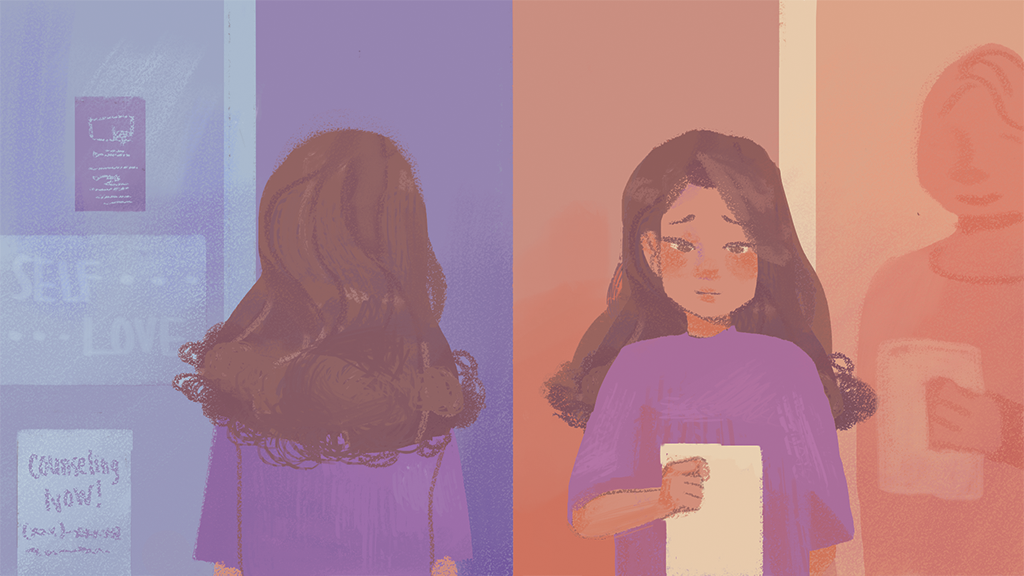Mental Health on Campus
by Taylor Synclair Goethe | published Feb. 27th, 2017
The Counseling and Psychological Services recently announced that they will be expanding RIT mental health services. The regular business hours will still be from 8:30 a.m.–4:30 p.m., Monday through Friday. However, if students need immediate care they can call the hotline at 1-855-436-1245 during the same hours including weekends and holidays.
Dr. David Reetz has been the director of RIT’s Counseling Center for a year and a half. He explains that as a dual therapist and administrator he is responsible for improving the “policies, practices and procedures” to best support the mental health needs of RIT students, even outside the institution.
“We also provide referral services to students for outside health care providers. We connect students to community mental health providers, psychiatrists and transgender-based medical services,” Dr. Reetz wrote.
A person’s overall mental health includes their overall psychological, social and emotional well-being. Mental illness includes a wide range of conditions that affects that person’s thinking, moods or emotions. According to Banner Health, mental illness appears most often in someone’s late teens to mid 20s, which is the general age demographic for college students.
Psychology Today (PT) wrote a feature on the growing “crisis” of mental illness among college students. Stress contributes heavily to one’s physical and mental health. According to PT, “this group has greater levels of stress and psychopathology than any time in the nation’s history," creating a somewhat of an “epidemic” of mental illness among college students.
Dr. Peter Hauser is a clinical neuropsychologist that works for the National Technical Institute for the Deaf (NTID) as a professor of psychology and director of Deaf Studies Laboratory. He explains that “it’s a time where students find barriers and challenges they didn’t know they had. K-12 is so structured and protective that when they go to college they may not have the support they need.”
Dr. Hauser continues about how personal stresses and academic pressures can interfere with students' educational goals, and it is the campus’ responsibility to provide an “intervention,” to knock down these barriers. Counseling and Psychological Services assists students with removing barriers. Dr. Reetz wrote the most common ones are “significant worry/anxiety, self-doubt and low motivation,” which impacts student’s relationships and willingness to take risks to achieve career aspirations.
A main concern with treating college student's mental illness is that they can’t get help unless they ask for it. Even with modern advancements in medicine and psychology, the realm of mental illness is still heavily stigmatized.
The National Institute of Health testifies that people with mental illnesses are often challenged in two main ways: “On one hand, they struggle with the symptoms and disabilities that result from the disease. On the other, they are challenged by the stereotypes and prejudice that result from misconceptions about mental illness.”
Dr. Hauser uses the analogy that if you are sick you would go to the doctor right away. However, due to the stigma of mental illness, many people make excuses or delay seeking treatment out of shame or embarrassment. He explains that “going to the doctor for counseling should [have] the same perception as going for a cold.” The staff in the Counseling and Psychological Services have begun working with other departments, classrooms, residence halls, athletics, etc. to raise awareness and understanding of collegiate mental health. This school year alone there has been 400 percent increase in mental health education outreach hours.
“Anyone would benefit from going to the gym. It doesn’t matter how fit you are, it’s the gym and it’s healthy. Mental health is similar. Anyone would benefit from counseling," Dr. Hauser explained.
The expansion of the Counseling and Psychological Services will not be able to stop the influx of mentally ill students or erase stigmas regarding them, but it is a step in the right direction. Hopefully, further education about mental health and further development into mental health programs will create a better academic environment for all.
Ideally, the office would work closely with all the academic colleges, as well as all the campus service departments, in order to create an even more mentally healthy campus culture and community.



